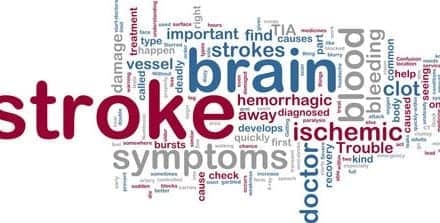According to a press release from the European Society of Cardiology (ESC), patients who have rheumatoid arthritis (RA) may face an increased risk of a surprise heart attack. The research was presented by Dr Adriana Puente, a cardiologist in the National Medical Centre “20 de Noviembre” ISSSTE in Mexico City, Mexico, at ICNC 12.
ICNC is organized by the Nuclear Cardiology and Cardiac CT section of the European Association of Cardiovascular Imaging (EACVI), a registered branch of the European Society of Cardiology (ESC), the American Society of Nuclear Cardiology (ASNC), and the European Association of Nuclear Medicine (EANM).
The release adds that risk increased despite patients having no symptoms, and was independent of conventional cardiovascular risk factors such as smoking and diabetes.
Puente rearticulates the study’s findings in the release, noting that the study “suggests that one quarter of patients with rheumatoid arthritis and no symptoms of heart disease could have a heart attack without prior warning.”
Puente adds that RA impacts 1.6% of the general population and is the first cause of consultation in the rheumatology service. The condition nearly doubles the risk of a heart attack, Puente says, but most patients never knew they had heart disease and were never alerted about their cardiovascular risk.
During the study, researchers investigated the presence of ischaemia and infarction secondary to atherosclerotic disease (coronary artery disease) in 91 patients with RA and conventional cardiovascular risk factors but no symptoms of heart disease. The release states that inflammatory markers, RA disease activity, and risk factors were measured in all patients. The existence of ischaemia and infarction were assessed using the nuclear cardiology method Gated Single Photon Emission Computed Tomography (SPECT).
The results indicate that researchers found 55% of patients had dyslipidemia (high blood lipids), 32% had hypertension, 14% were smokers, and 10% had type 2 diabetes. Nearly 24% of patients had abnormal Gated SPECT, indicating ischaemia or infarction. There was no significant correlation between the presence of ischaemia or infarction and RA disease activity, inflammatory markers, or cardiovascular risk factors, researchers say.
“Our study shows that one quarter of patients with rheumatoid arthritis and no symptoms of heart disease do have coronary heart disease, as evidenced by the presence of myocardial ischaemia or infarction in the Gated SPECT study. This means they are at increased risk of cardiovascular death,” Puente explains.
She also notes that the ischaemia and infarction may be explained by the persistence of the systemic inflammation in RA, which may cause an accelerated atherosclerosis process.1
“Our finding of no association between the Gated SPECT results and inflammatory markers could be because all the patients were taking pharmacological treatment,” she says.
Patients in the study were 90% women and 59 years old on average and had a similar frequency of cardiovascular risk factors as the general population, the release reports. Puente found that the presence of ischaemia or infarction was independent of cardiovascular risk factors.
The study’s results, she says, spotlight the importance of conducting diagnostic tests in patients with RA to determine if they have cardiovascular disease, specifically atherosclerotic coronary artery disease (ischaemia or myocardial infarction), even if they have no symptoms and regardless of whether they have cardiovascular risk factors.
Reference:
-
Rheumatoid arthritis is an inflammatory condition characterized by the release of high levels of pro-inflammatory substances including cytokines (such as tumour necrosis factor alpha, interleukin 1 and interleukin 2) and adhesion molecules that may cause endothelial dysfunction and subsequent atherosclerotic disease.
[Source: ESC]





